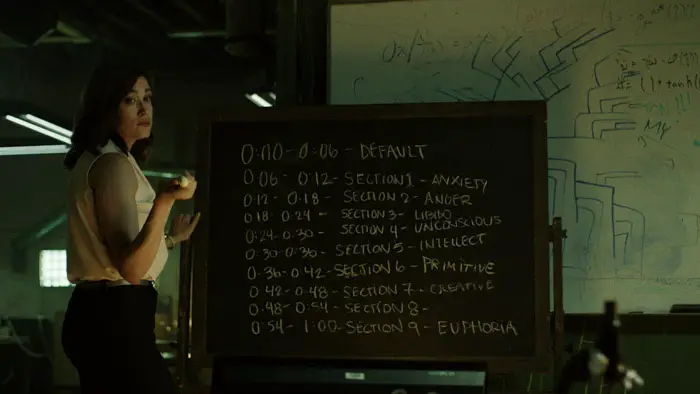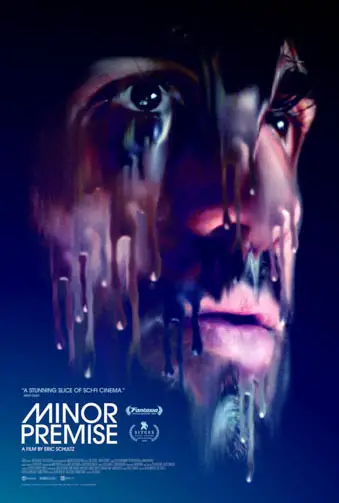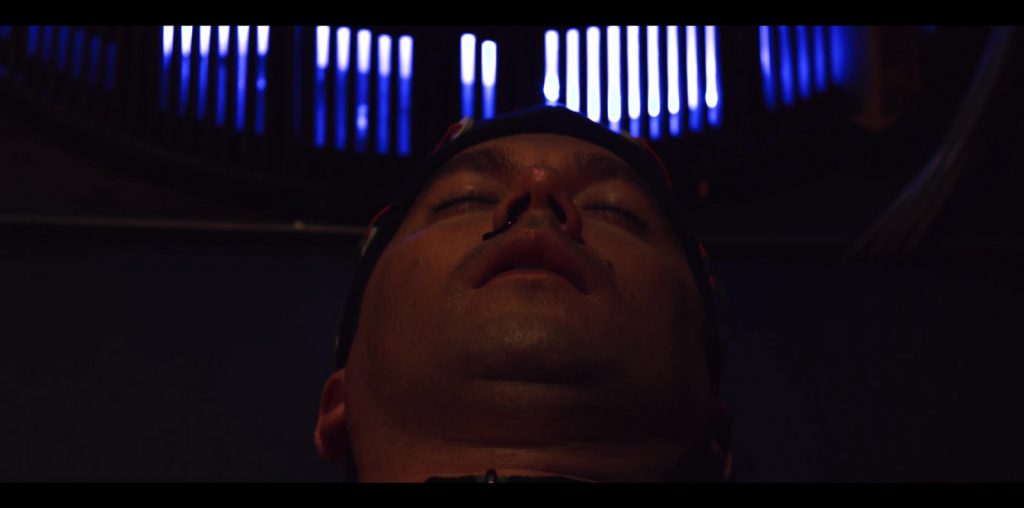
A troubled scientist on the cusp of a discovery decides to experiment on himself. Thus the premise for Minor Premise, and if you’ve seen just one “scientist behaving badly” thriller, I think it’s not spoiling anything to say that all does not go as planned. The actual event in films such as these is never the real twist, but rather the direct fallout and aftermath are.
Director and co-writer Eric Schultz owes a debt to Jonathan Nolan, the writer of Memento Mori, which fueled brother Christopher’s big breakthrough Memento. Making his feature-length debut, the director takes on a thoroughly heady concept, quite literally, as young neuroscientist Ethan Kochar (Sathya Sridharan) seeks to complete his father’s work recording and manipulating memory.
Haunted by near-misses, Ethan passes the time by lecturing to students remotely by day before plunging himself into his basement outfitted with a device that is just shy of perfecting his pop’s vision of capturing experiences held in the mind. Pressured by his Department Chair (Dana Ashbrook), who is threatening to pull the plug, in a drunken state, Ethan decides to experiment on himself.
The result fractures his consciousness into shards of various emotional states, and each has its own narrative timeline within the movie. This all causes Ethan to blackout every six minutes as his mind “resets,” and he awakens in a different state (violent, compassionate, h***y, and so on). Aided by ex-girlfriend Dr. Alli Fisher (Paton Ashbrook), Ethan attempts to mend his splintered mind and perhaps attain stability before it kills him or before his more duplicitous version sabotages the project for his own gain.

“…seeks to complete his father’s work recording and manipulating memory.”
Minor Premise is indeed a bold narrative concept that director Schultz carries out with minimal set design, setting it primarily in Ethan’s fluorescent-lit home lab. He infuses the film with a sickly, jaundiced color scheme that adds to Ethan’s sweaty, panicked, altered states as he races against time and himself. The mind-splitting concept allows Schultz to play with the movie’s structure, a la Memento, which leaves the audience as disoriented as the protagonist.
Sridharan is incrementally seedy, sinister, and self-involved, demonstrating a solid range that never totally warms himself to elicit total compassion from the audience. But like true scientists so singularly devoted to their cause, he exhibits a man driven by his discoveries; emotions be damned. So while mainstream audiences may wish for more empathy for their lead, he actually remains true to what the character is.
But with his wiry frame and searing stares, Sridharan manages to sway from the damaged, detached side of the role to the hair-trigger, heated version of his ruptured psyche without missing a beat.
While Schultz and co-writers Justin Moretto and Thomas Torrey don’t exactly stick the landing, they come damn close. The conclusion is not completely earned by the end credits, but Minor Premise‘s aspirations are far greater than movies with much larger budgets and star power.
It’s a minor flaw in an otherwise audacious narrative challenge, especially for a debut feature, and I would much rather watch a filmmaker swing for the fences than take an easy bunt. Schultz demonstrates that he has much on his mind as a filmmaker and will be one to follow when the offers trickle in (which they should) after Minor Premise.

"…concept allows Schultz to play with the film’s structure, a la Memento, which leaves the audience as disoriented as its protagonist."


